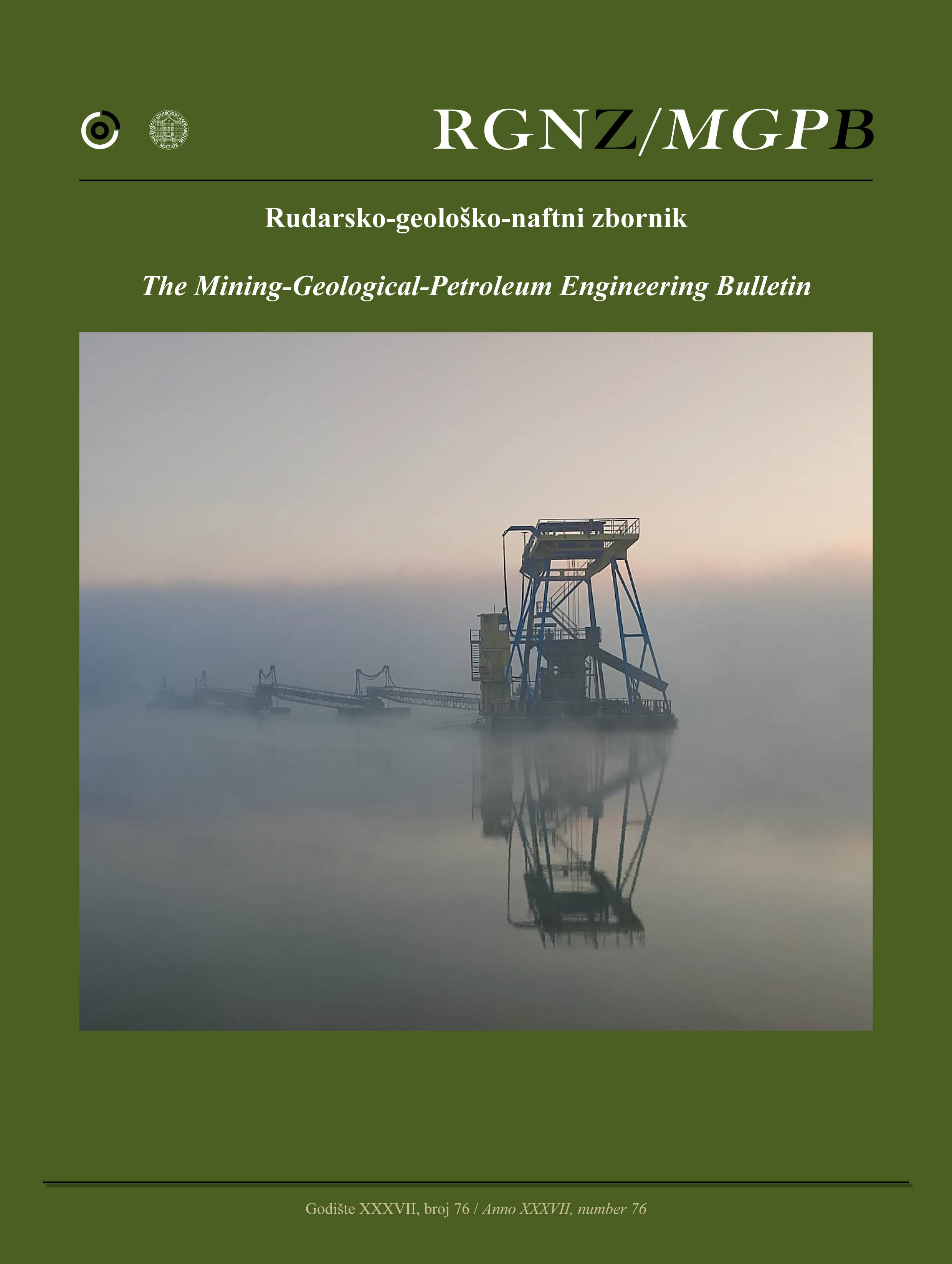Application of Artificial Intelligence in Reservoir Simulation for Characterizing Multi-Phase Fluid Flow through Petroleum Reservoirs
DOI:
https://doi.org/10.17794/rgn.2025.5.3Keywords:
artificial intelligence, machine learning, reservoir simulation, conceptual model, mathematical model, numerical modelAbstract
Artificial intelligence (AI) has rapidly advanced and influenced all scientific fields, including the petroleum industry, where it is no longer a novel concept. This article explores the evolving role of AI and its integration with traditional reservoir simulation approaches. The first section highlights the diminishing emphasis on conceptual and mathematical modelling in reservoir simulation, with a growing focus on sophisticated numerical solution techniques. This shift often neglects fundamental reservoir physics and mathematics, leading to the superficial characterization of multi-phase fluid flow in petroleum reservoirs. The second section examines the prevalent use of petroleum software packages, which heavily rely on input data without accounting for variations in data scales. These tools treat underlying programming as a black box, often bypassing critical basic sciences, such as reservoir conceptualization, applied mathematics, and numerical techniques, resulting in incomplete reservoir characterization. The third section discusses the role of machine learning (ML) and AI in reservoir applications. While data science plays a pivotal role, the lack of integration with fundamental reservoir physics reduces fluid flow analysis to an art devoid of scientific rigour. The final section proposes a hybrid approach that couples AI/ML with traditional reservoir simulation. This integration bridges the gap between science-based reservoir simulation and AI-driven fluid flow characterization, enabling the petroleum industry to achieve a new paradigm for multi-phase fluid flow analysis. By combining fundamental science with advanced AI techniques, this approach offers a comprehensive framework for accurate reservoir characterization and improved hydrocarbon production.
Downloads
Published
Issue
Section
License
Copyright (c) 2025 Viswakanth Kandala, Suresh Kumar Govindarajan, Tummuri Naga Venkata Pavan, Swaminathan Ponmani, Srinivasa Reddy Devarapu

This work is licensed under a Creative Commons Attribution 4.0 International License.
Creative Commons-BY
Authors who publish with this journal agree to the following terms:
In agreeing this form, you certify that:
- You read the ethical codex of the RGN zbornik available at journal web.
- You submitted work is your original work, and has not previously been published and does not include any form of plagiarism.
- You own copyright in the submitted work, and are therefore permitted to assign the licence to publish to RGN zbornik.
- Your submitted work contains no violation of any existing copyright or other third party right or any material of an obscene, libellous or otherwise unlawful nature.
- You have obtained permission for and acknowledged the source of any illustrations, diagrams or other material included in the work of which you are not the copyright owner.
- You have taken due care to ensure the accuracy of the work, and that, to the best of your knowledge, there are no false statements made within it.
- All co-authors of this submitted work are aware of, and in agreement with, the terms of this licence and that the submitted manuscript has been approved by these authors.
Publication licence
You retain copyright in your submitted work, according to journal license policy (CC-BY). By signing this form you agree that RGN zbornik may publish it under the publication licence. In summary the licence allows the following:
Anyone is free:
- To copy, distribute, display, and perform the work.
- To make derivative works.
Under the following conditions:
- The original author must always be given credit.
- The work may not be used for commercial purposes.
- If the work is altered, transformed, or built upon, the resulting work may only be distributed under a licence identical to this one.
Exceptions to the licence
In addition to publishing the work printed under the above licence, RGN zbornik will also enable the work to be visible online.
The journal editorial can change the licence rules anytime but it cannot retroactively restrict author(s) rights.


